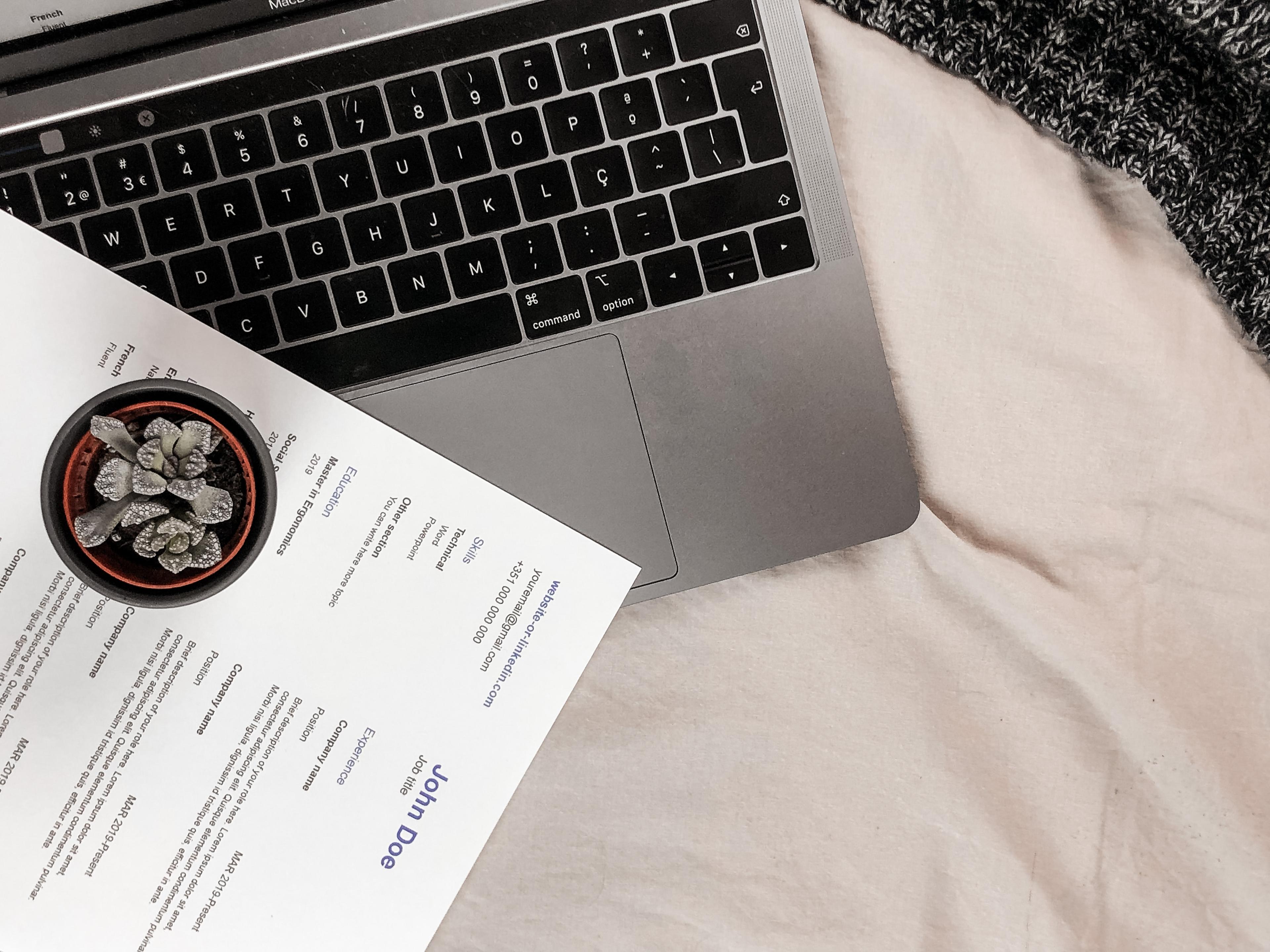Managing Stress During Investment Banking Interviews: Tips & Techniques
Are you feeling overwhelmed and stressed out about upcoming investment banking interviews? This article provides valuable tips and techniques to help you manage stress and perform your best during the interview process.
Posted March 6, 2025

Table of Contents
Free Event

Featuring Giuseppe S.
Common Summer Internship Mistakes & How To Avoid Them
Starting Thursday, April 24
11:00 PM UTC · 60 minutes

Featuring Giuseppe S.
Interviewing for a position in investment banking can be a stressful experience for even the most seasoned professional. Whether it's your first job interview or you're a seasoned pro, managing stress during this critical process is essential. In this article, we'll explore tips and techniques that you can use to manage stress during your investment banking interviews.
The Importance of Managing Stress During Investment Banking Interviews
The stakes are high when it comes to interviewing for a job in investment banking. You're competing against other candidates for a limited number of positions, and the process can be grueling. Your ability to manage stress during this time can make all the difference in how you perform during the interview process.
Research has shown that high levels of stress can negatively impact cognitive function, memory, and decision-making abilities. This means that if you're feeling overwhelmed and stressed during an investment banking interview, you may struggle to answer questions effectively or make sound judgments. Additionally, stress can manifest physically, leading to symptoms such as sweating, shaking, and a racing heart, which can further hinder your performance.
Understanding the Types of Stress Experienced During Job Interviews
Interview stress comes in many forms. For some people, it's the fear of rejection. For others, it's the pressure to perform and impress the interviewer. Understanding the sources of your stress can help you develop strategies to manage it more effectively.
One common source of stress during job interviews is the fear of the unknown. You may not know what questions will be asked or what the interviewer is looking for in a candidate. This uncertainty can lead to anxiety and nervousness, making it difficult to present yourself in the best possible light.
Another source of stress is the feeling of being judged. During a job interview, you are being evaluated on your skills, experience, and personality. This can be intimidating, especially if you feel like you are being compared to other candidates. It's important to remember that the interviewer is simply trying to find the best fit for the position, and that you have valuable qualities to offer.
Pre-Interview Preparation Techniques to Reduce Anxiety
One of the best ways to reduce interview stress is to prepare thoroughly. This includes researching the company and the position you're applying for, reviewing your resume and cover letter, and practicing answers to common interview questions. The more prepared you are, the more confident you'll feel.
Another helpful technique to reduce anxiety before an interview is to practice relaxation techniques such as deep breathing, meditation, or yoga. These techniques can help calm your nerves and clear your mind, allowing you to focus on the interview questions and present yourself in the best possible light. Additionally, getting a good night's sleep and eating a healthy meal before the interview can also help you feel more relaxed and energized.
Mental and Physical Exercises for Coping with Interview Stress
There are many mental and physical exercises you can use to help manage your interview stress. Deep breathing exercises, visualization techniques, and even yoga can help you feel more calm and centered before and during the interview.
In addition to these exercises, it can also be helpful to practice positive self-talk. Remind yourself of your strengths and accomplishments, and focus on the value you can bring to the company. Another technique is to prepare thoroughly for the interview by researching the company and practicing common interview questions. This can help you feel more confident and in control during the actual interview.
The Power of Positive Thinking: How to Stay Confident and Focused During Interviews
A positive mindset can go a long way in helping you manage interview stress. This includes affirming your own value and abilities, focusing on your strengths, and visualizing a successful outcome.
Another way to maintain a positive mindset during interviews is to practice deep breathing exercises. Taking deep breaths can help calm your nerves and reduce anxiety. You can also try visualization techniques, where you imagine yourself in a calm and confident state before the interview.
It's also important to remember that interviews are a two-way street. While the interviewer is assessing your fit for the position, you should also be evaluating whether the company and role align with your career goals and values. This can help shift your focus from solely impressing the interviewer to finding the right fit for yourself.
Mindfulness Techniques for Interview Success: Breathing and Visualization Exercises
Mindfulness is all about being aware of and present in the moment. Mindfulness techniques like deep breathing and visualization exercises can help you stay centered and focused during the interview process.
One of the most effective breathing exercises for mindfulness is the 4-7-8 technique. This involves inhaling for 4 seconds, holding your breath for 7 seconds, and exhaling for 8 seconds. This exercise can help calm your nerves and reduce anxiety before and during the interview.
Visualization exercises can also be helpful in preparing for an interview. Take some time to visualize yourself in the interview, answering questions confidently and articulately. Imagine the interviewer being impressed with your responses and offering you the job. This positive visualization can help boost your confidence and reduce any negative thoughts or self-doubt.
Strategies for Answering Stressful Interview Questions with Ease
Even with all the preparation in the world, there may be questions that catch you off guard during the interview process. Having strategies in place for answering these types of questions can help you maintain your composure and provide thoughtful, effective responses.
One effective strategy is to take a moment to pause and gather your thoughts before answering. This can help you avoid giving a knee-jerk response that may not be well thought out or accurate. Additionally, it's important to listen carefully to the question being asked and make sure you understand it fully before answering. If you're unsure, don't be afraid to ask for clarification. Finally, try to stay calm and confident, even if the question is particularly challenging. Remember that the interviewer is simply trying to get to know you better and assess your qualifications for the position.
Staying Calm Under Pressure: Tips for Handling Unexpected Situations During Interviews
Interviews can be unpredictable. There may be unexpected questions, technical difficulties, or other unforeseen challenges. Being prepared for these situations can help you stay calm and focused on the task at hand.
One way to prepare for unexpected situations during interviews is to research the company and the position beforehand. This can help you anticipate the types of questions that may be asked and the skills that may be required. Additionally, practicing your responses to common interview questions can help you feel more confident and prepared. Remember to take deep breaths and stay focused on your strengths and qualifications, even in the face of unexpected challenges.
Post-Interview Strategies for Managing Stress and Anxiety
After the interview is over, it's normal to feel some level of stress and anxiety. Strategies like debriefing with a friend or mentor, reflecting on what went well and what could be improved, and engaging in self-care activities can help you manage these feelings and prepare for future interviews.
It's important to remember that rejection is a common part of the job search process and not to take it personally. If you don't receive an offer, try to view it as an opportunity to learn and grow. You can ask for feedback from the interviewer to understand areas where you can improve and apply that knowledge to future interviews. Remember to stay positive and keep moving forward in your job search.
The Role of Self-Care in Managing Interview Stress: Nutrition, Exercise, and Sleep
Self-care is essential for managing interview stress. Paying attention to your nutrition, exercising regularly, and getting enough sleep can all help you feel more focused and energized during the interview process.
One important aspect of self-care during the interview process is managing your time effectively. This means setting aside time for relaxation and leisure activities, as well as for interview preparation. By creating a balanced schedule, you can reduce stress and maintain a positive mindset.
Another key element of self-care is practicing mindfulness and self-reflection. This involves taking time to check in with yourself and assess your emotions and thoughts. By being aware of your mental state, you can identify areas of stress and take steps to address them before they become overwhelming.
Seeking Professional Help: When to Consider Counseling or Therapy for Interview Anxiety
If you're struggling with interview anxiety despite your best efforts, it may be time to consider medical or professional help. Counseling or therapy can provide additional tools and techniques to help you manage your stress more effectively.
One of the benefits of seeking professional help for interview anxiety is that you can receive personalized guidance and support. A therapist or counselor can work with you to identify the root causes of your anxiety and develop a treatment plan that is tailored to your specific needs.
Additionally, counseling or therapy can help you build confidence and improve your communication skills. By practicing interview scenarios and receiving feedback from a professional, you can learn how to present yourself in a more positive and effective manner during job interviews.
Conclusion: Empowering Yourself to Succeed in Investment Banking Interviews
Managing stress during investment banking interviews is essential for your success in this competitive field. By understanding the sources of your stress, developing effective strategies to manage it, and engaging in self-care activities, you can empower yourself to succeed and land your dream job.
Another important aspect to consider when preparing for investment banking interviews is to research the company and the industry thoroughly. This will not only help you answer questions more confidently but also demonstrate your interest and commitment to the field. Additionally, networking with professionals in the industry can provide valuable insights and connections that can give you an edge in the interview process.
Finally, it is important to remember that success in investment banking interviews is not solely based on technical knowledge and skills. Employers also look for candidates who possess strong communication, teamwork, and leadership skills. Therefore, it is important to develop and showcase these soft skills through your experiences and achievements, both in and outside of the classroom.











